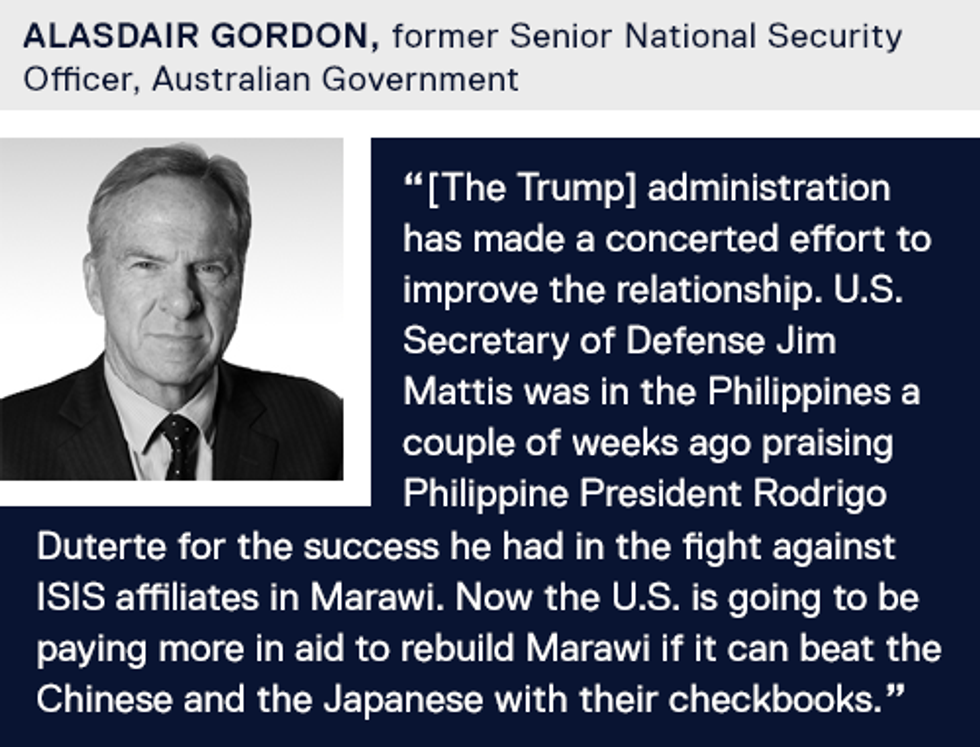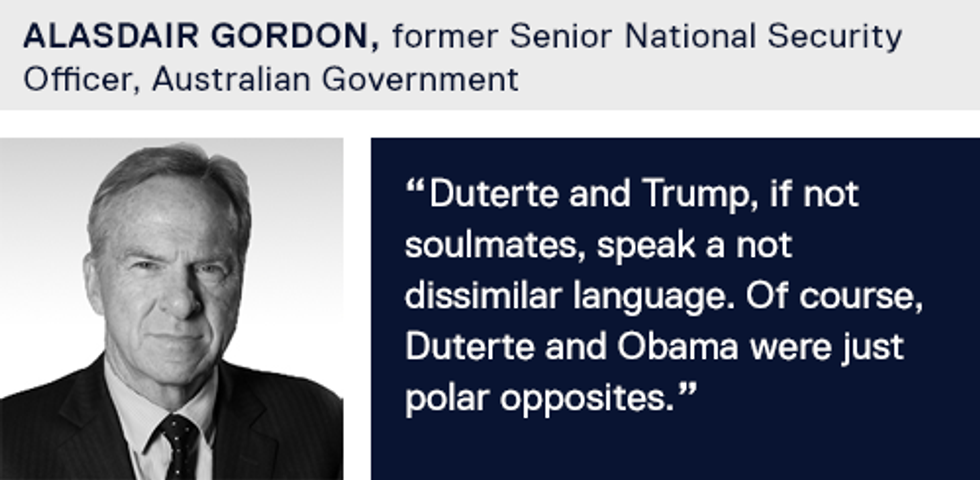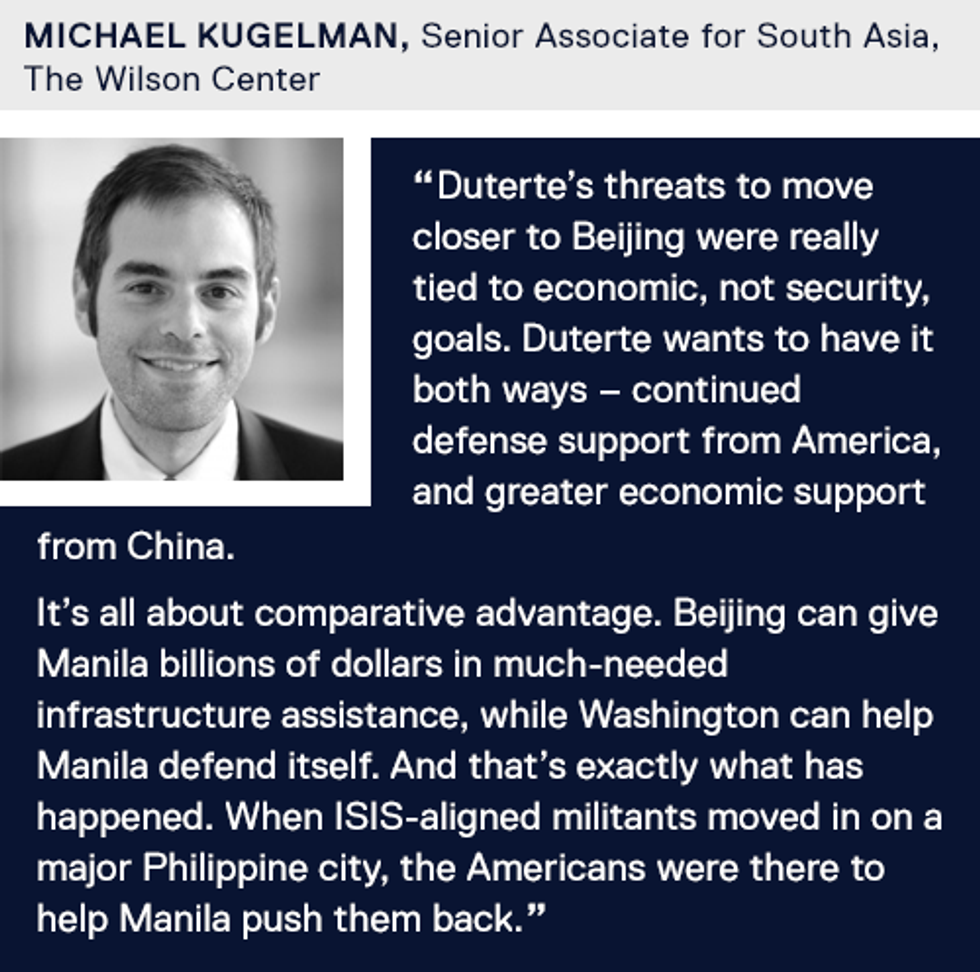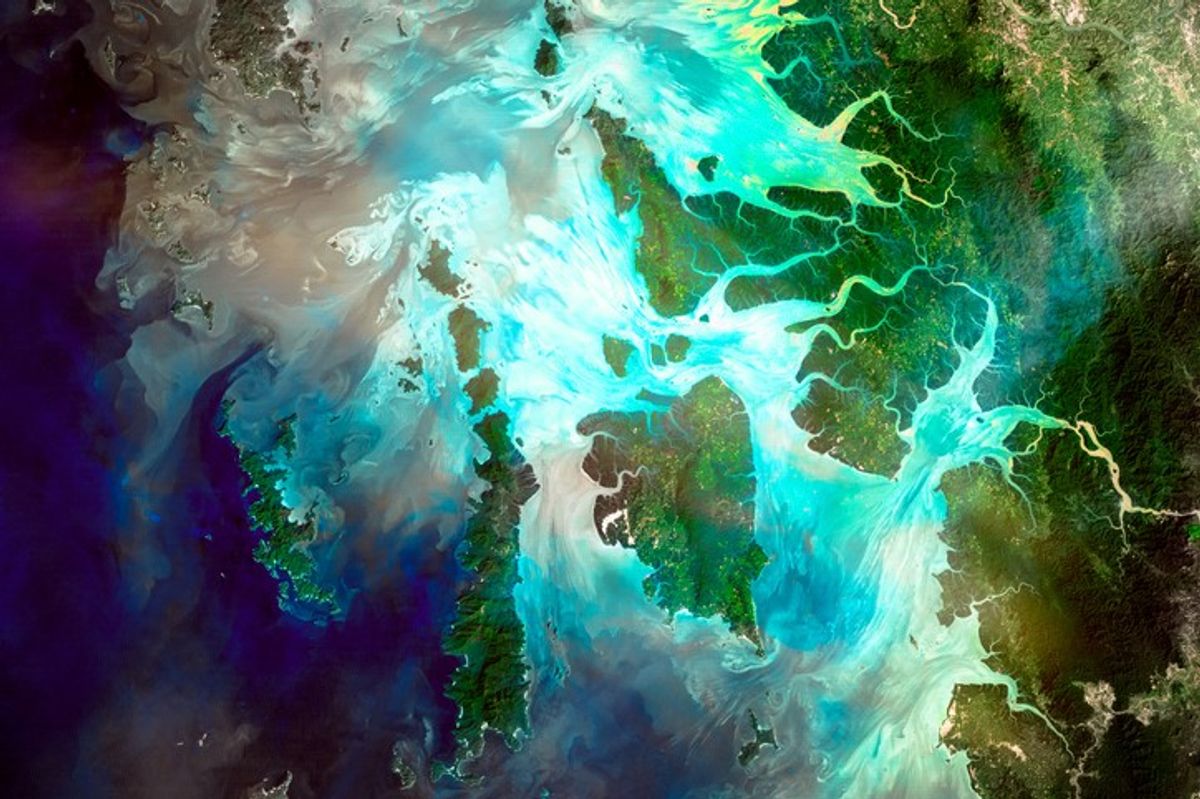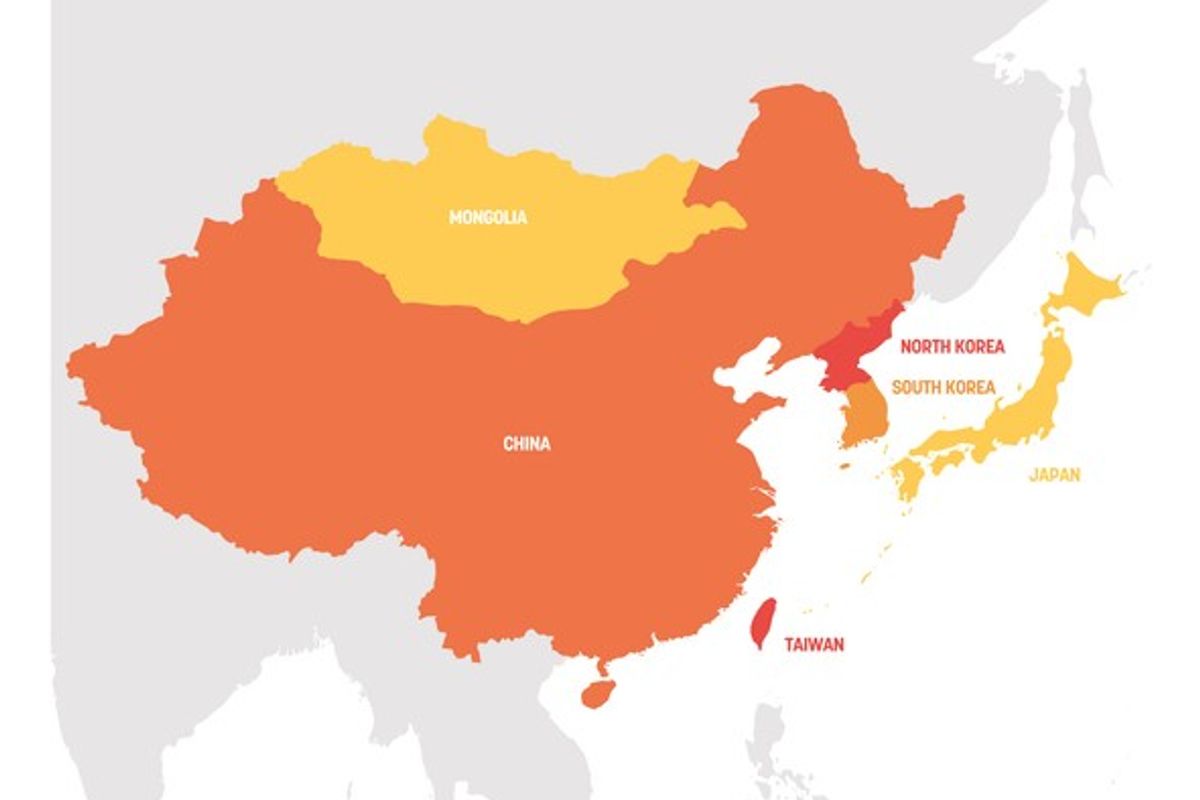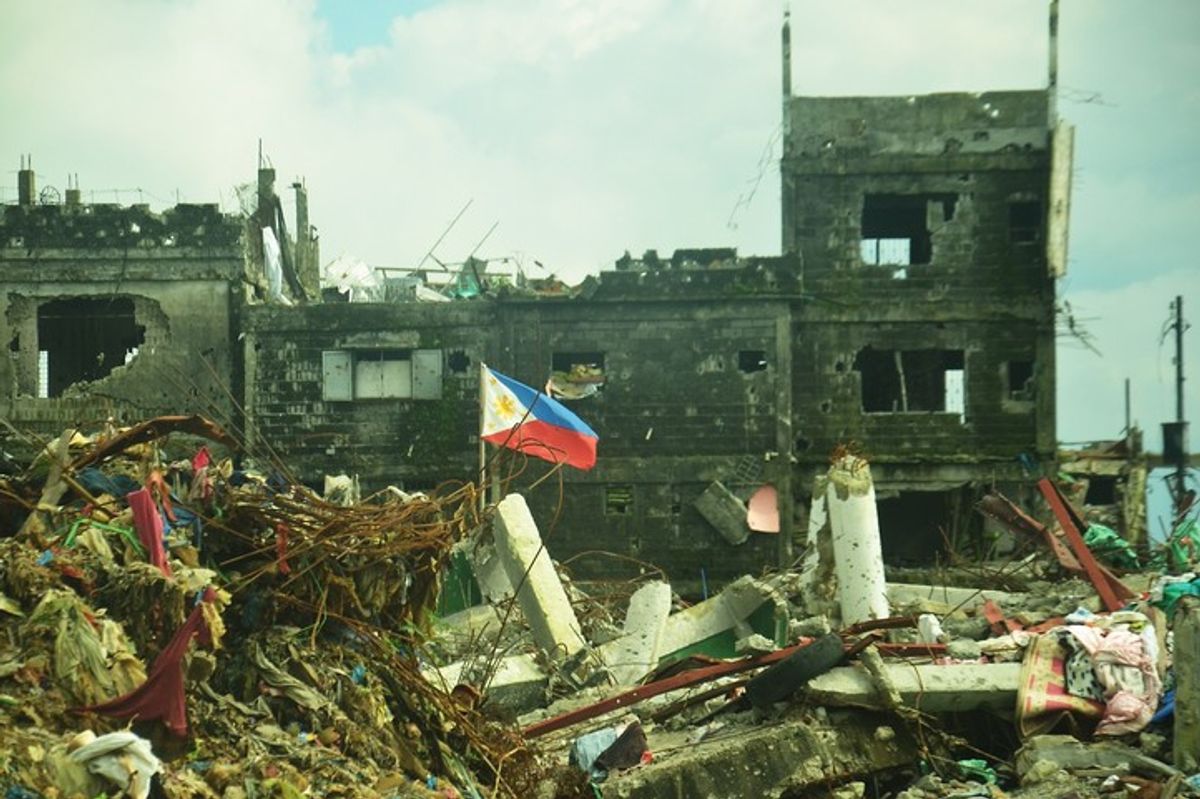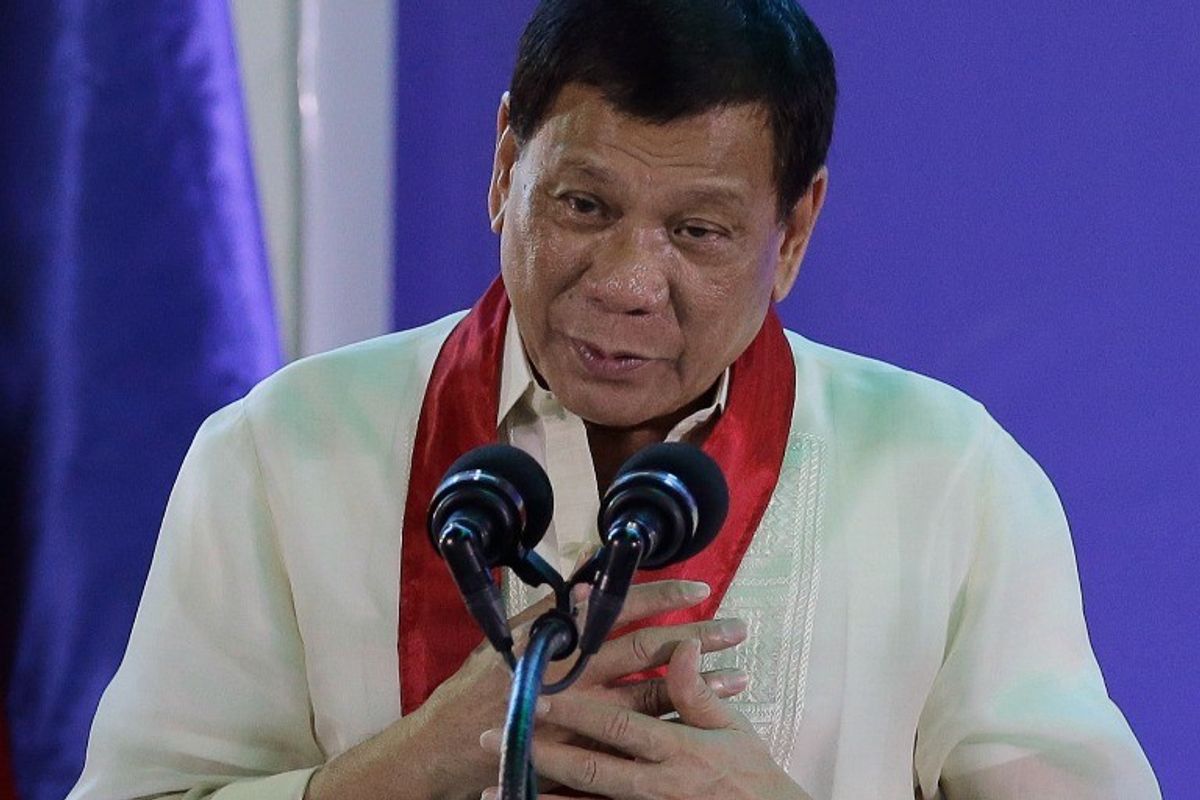In the Philippines Monday, President Donald Trump will try to maintain momentum as the U.S. rebuilds its relationship with Manila amidst rising Chinese influence. Ties between the two nations endured a fracture at the end of the Obama administration, due to Duterte's draconian anti-drug policies and a demonstrated warmness toward China. However, a friendly relationship between Trump and Duterte - and key U.S. security assistance to the Philippines over the summer - have demonstrated the advantages of the U.S. alliance to the "Trump of the East."
- For decades, the United States and the Philippines have boasted one of the strongest relationships in Southeast Asia. Their military alliance is based on the 1947 Military Base agreement, the 1951 Mutual Defense Treaty and the 1998 Visiting Forces agreement.
- In 2014, Washington and Manila signed the Enhanced Defense Cooperation Agreement (EDCA) in 2014, a ten-year deal that allows a strengthened U.S. military presence in the Philippines.
Duterte’s friendliness with China – as a stated alternative to the U.S. – and draconian anti-drug crusade drove a wedge between Washington and Manila. Elected in 2016, Duterte’s populist platform – to combat the drug trade and improve the country’s dire economic state – struck a chord with the population. His popularity, though lower than after his election, remains high.
- In October 2016, just as the U.S. and the Philippines began a joint military exercise, Duterte threatened to “break up” with the U.S. and said that then U.S. President Barack Obama can “go to hell.” He also said that the military exercise would be the “last joint military exercise with the United States.”
- During a trip to Beijing in October 2016, Duterte announced a military and economic “separation from the United States,” stating that America “had lost,” to loud applause in Beijing’s Great Hall of the People. China also agreed to $15 billion worth of investment projects in the Philippines and another $9 billion in credit facilities.
- Duterte has completely reversed Manila's course in the South China Sea, stating "I will set aside the arbitral ruling. I will not impose anything on China,” after an international tribunal found in favor of the Philippines' suit against Beijing.
Since U.S. President Donald Trump assumed office, however, the relationship appears to be on the mend. Both leaders share populist messages and a penchant for – in their supporters’ minds — “telling it like it is.”
- According to Duterte's spokesman Harry Roque, “President Trump specifically said he has always been a friend of the Duterte administration, unlike the previous administrations of the United States...he stressed that he can be counted upon as a friend of the Duterte administration.”
- On a phone call between the two leaders in the spring, Trump congratulated Duterte telling him he was doing an “unbelievable job on the drug problem.”
- The Philippine foreign secretary, Alan Peter Cayetano, said that the two leaders' initial meeting in Danang over the weekend went well, adding, “if you have two tough guys in a room, there is always fear that they will try to appear tougher than the other. But they understand the same language, they have the same goals. In this case, both just want a better life for their people.”
Major security-related events in the Philippines also strengthened cooperation, as the U.S. provided key support – that China could not. As Philippine security forces battled throughout the summer to retake the city of Marawi from ISIS-linked militants, the U.S. provided the Philippine army with military equipment as well as technical assistance, such as intelligence, surveillance and reconnaissance.
- The battle for Marawi began on May 23 after Philippine forces raided the house of Isnilon Hapilon, the head of a terrorist organization known as the Abu Sayyaf, which pledged allegiance to ISIS leader Abu Bakr al-Baghdadi in July 2014.
- During the raid, the Philippine army encountered fiercer-than-expected resistance as Hapilon’s supporters, aligned with another pro-ISIS brigade called the Maute Group, managed to overrun the city and free prisoners from local jails.
- It took five months for Philippine forces to defeat pro-ISIS militants in city of Marawi located in the Philippine island of Mindanao. In mid-October, the Philippine army announced that it had killed Hapilon and Omar Maute, the leader of the Maute group, essentially ending the uprising.
Like his other visits throughout the region, Trump’s stop in Manila will likely focus on further defense cooperation and additional trade agreements. Whether he will risk success in those areas to raise human rights issues in the Philippines is less clear.
- Last week, Duterte maintained his strongman persona and tough rhetoric, cautioning the U.S. president to “lay off” human rights when they meet. “You want to ask a question, I’ll give you an answer. Lay off. That is not your business. That is my business. I take care of my country, and I will nurture my country to health,” Duterte told reporters.
- According to Sarah Huckabee Sanders, White House Press Secretary, “human rights briefly came up in the context of the Philippines’ fight against illegal drugs."
- Duterte's spokesman denied the issue was discussed, stating "the issue of human rights did not arise; it was not brought up,” and that Trump “appeared sympathetic and did not have any official position on the matter and was merely nodding his head, indicating that he understood the domestic problem that we faced on drugs.”
Ultimately, Trump’s trip to Manila should be viewed as an opportunity for the U.S. president to rebuild ties with a key ally in the region by leveraging a relationship with a leader who shares - at least in some ways - a similar brash style. According to the Philippine foreign minister, “sometimes, tough guys become close friends in real life, to put it that way.”
Bennett Seftel is deputy director of analysis at The Cipher Brief. Follow him on Twitter @BennettSeftel.
This article was updated Monday morning to reflect the White House's statement on the topics discussed at the bilateral meeting.




